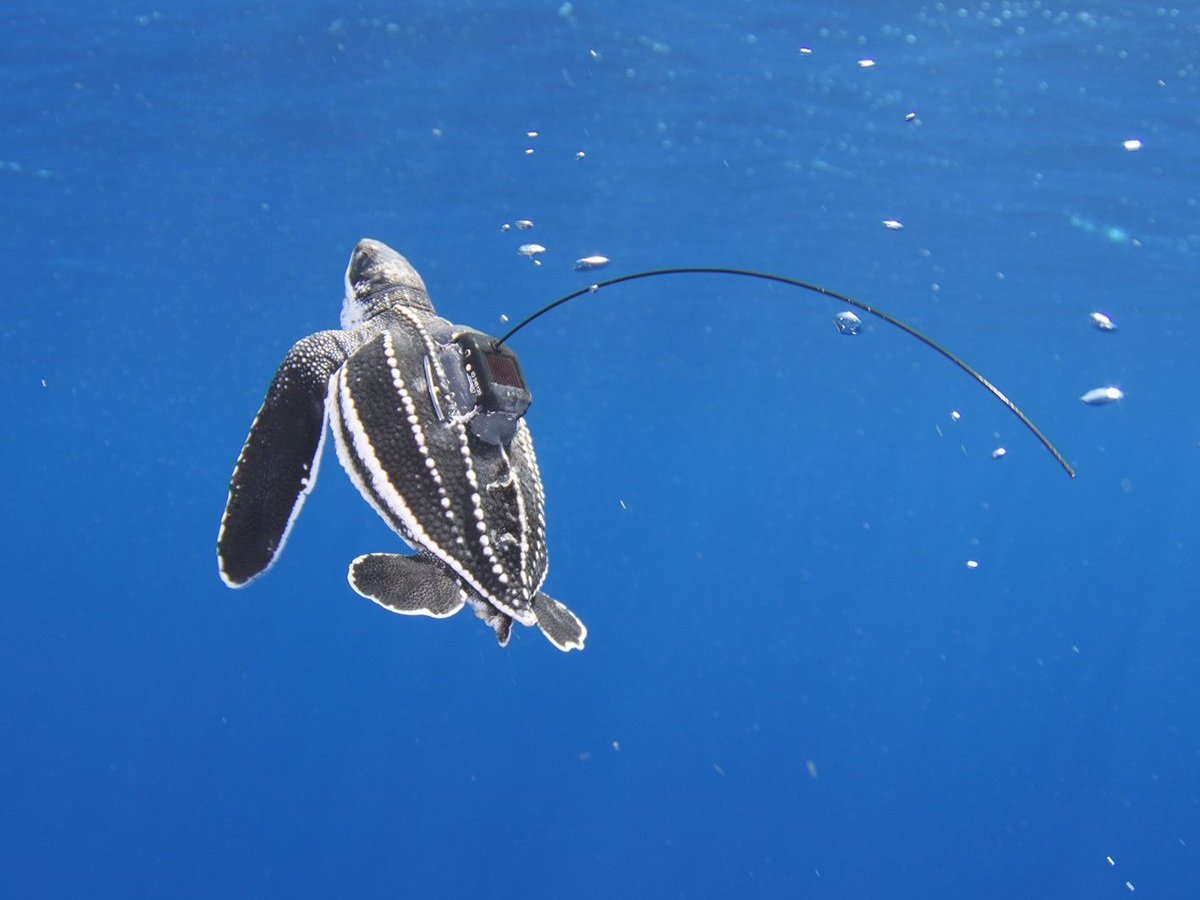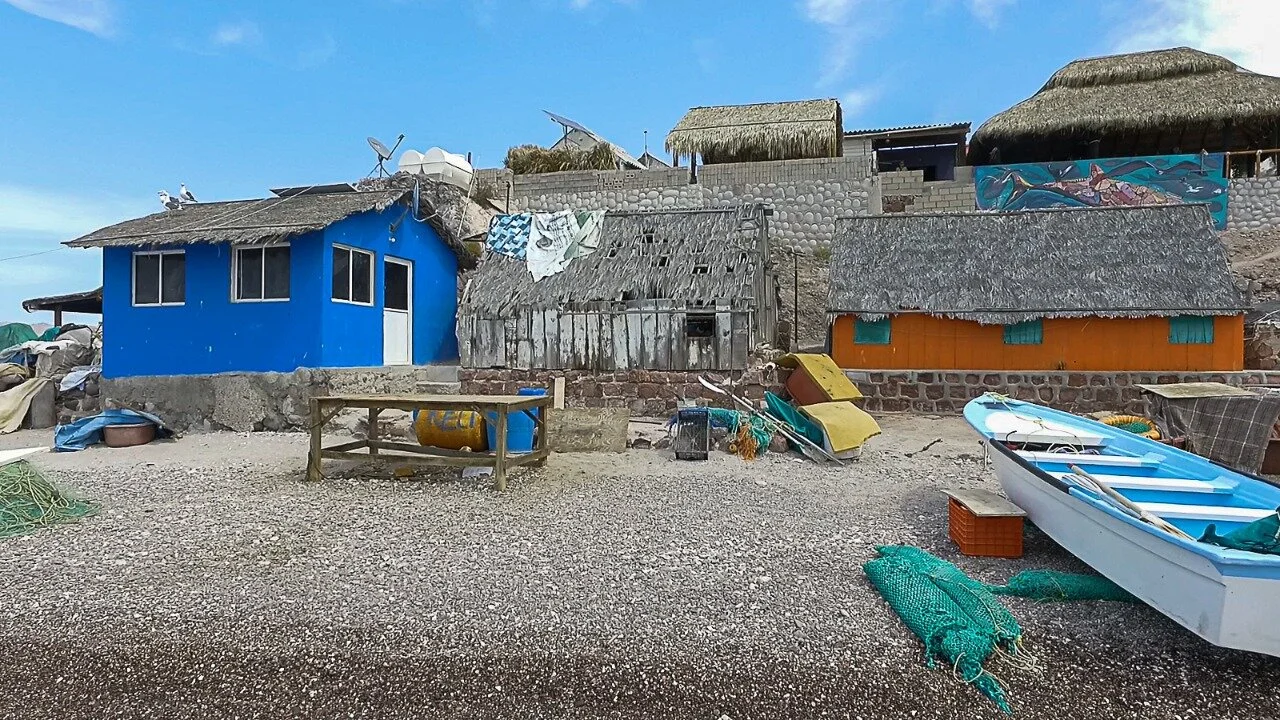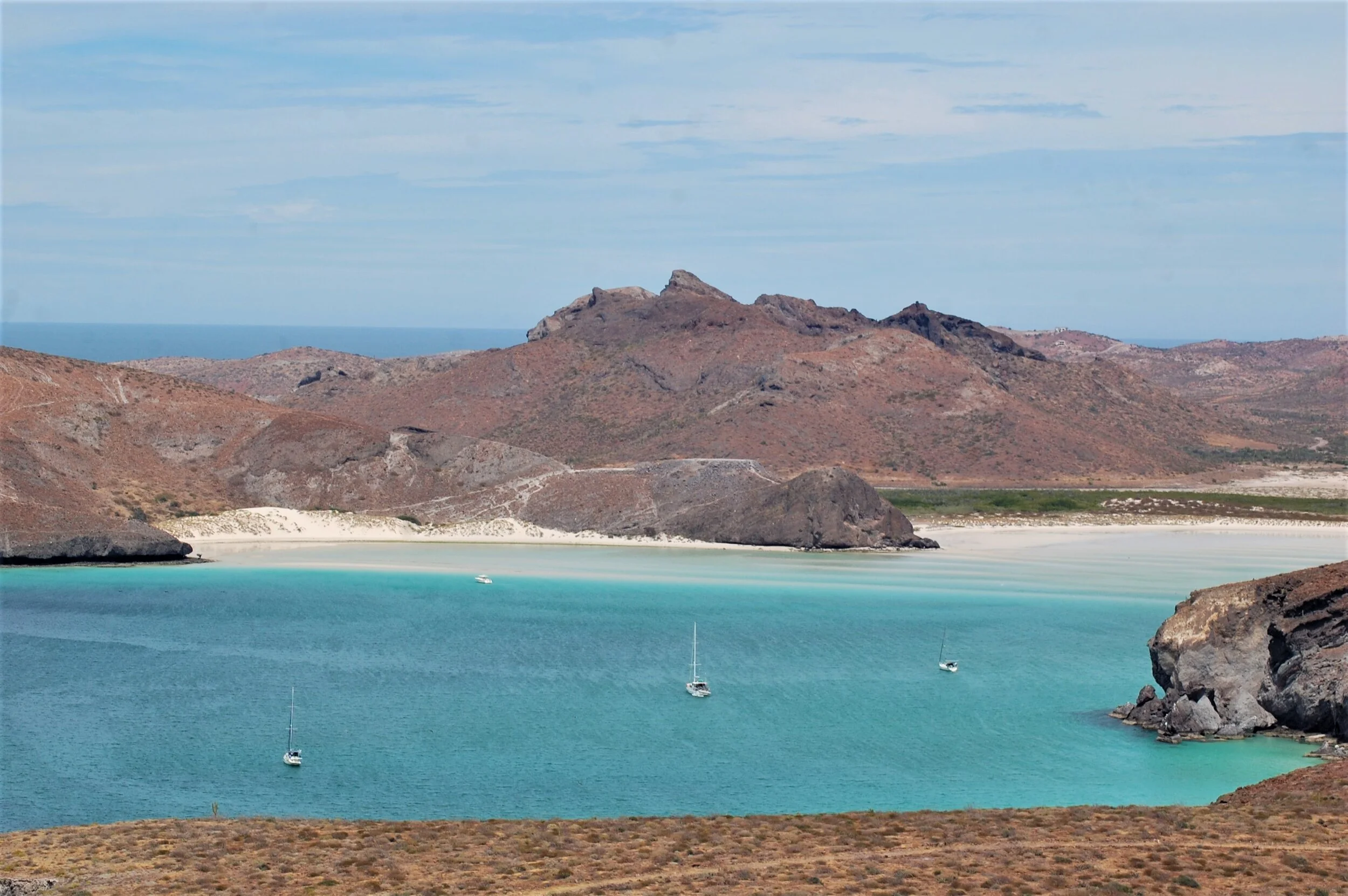A new generation of artisanal fishers in the El Pardito fishing cooperative of Baja California Sur is working to replenish overfished stocks and reduce sea turtle bycatch. Upwell researcher Stephanie Rousso has seen first-hand the threats posed by artisanal fisheries to sea turtles, mostly by entanglement in gillnets. In collaboration with fishers from the El Pardito cooperative, Stephanie is designing a pilot program to measure and reduce sea turtle bycatch.
A bird's eye view on sea turtles in La Paz Bay
Amidst the Coronavirus shutdown, citizen scientists quarantining on their sailboats in Mexican waters continue to report their sea turtle sightings via Upwell’s Sea Turtle Spotter project. The sightings reported by the citizen scientists are astonishing. Following on these reports, Upwell’s resident researcher in Mexico, Stephanie Rousso, arranged with a local pilot to take to the sky for a bird’s eye view of sea turtle distribution around the southern end of the Baja California Peninsula.
Engaging citizen scientists in the sailing community to promote sea turtle conservation
Inspired by Upwell’s collection of citizen science data to advance protections for sea turtles at sea, three biologists--informally dubbed “the turtle girls”--resolved to join the caravan of boats on the Baja Haha sailing rally to teach sailors and cruisers how to identify and report sea turtle sightings during the Baja Ha-Ha.









